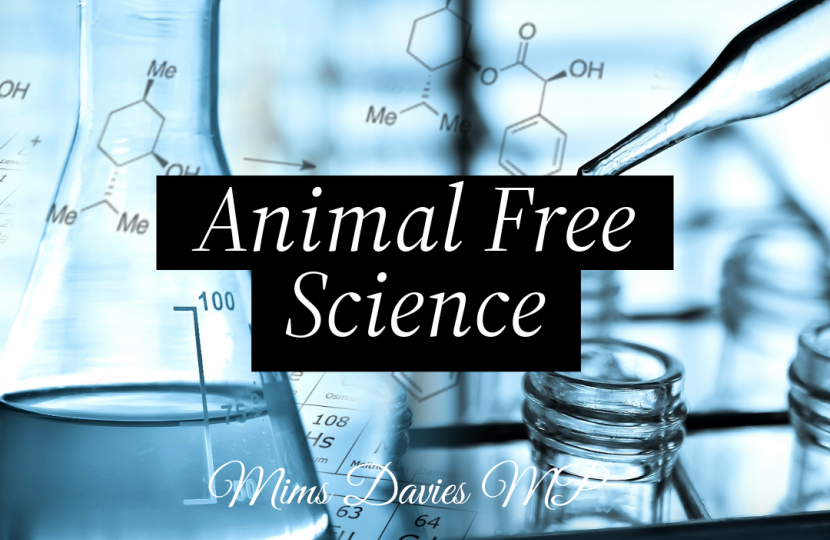
We are a nation of animal lovers, and animal welfare has been a key priority since my election to parliament so I completely understand that the use of animals in science, including toxicity testing, is a sensitive issue.
As such I welcome that the UK is one of the world's leading nations in the development of non-animal methods. I know the Government is keen to ensure that these are utilised wherever is possible and I share the Government’s ambition to reach the point at which animal research and testing is no longer necessary, having been fully replaced by effective alternatives. Sadly, however, technology is not yet at a point to wholly replace animal testing.
Therefore, I currently support the Government’s approach to support and accelerate advances in biomedical science and technology to reduce reliance on the use of animals in research. The Government is actively supporting and funding the development and dissemination of the three Rs which aim to replace the use of animals not necessary for research; to reduce the use of animals in the meantime; and to refine to eliminate or reduce distress to those animals already involved. This is primarily delivered through the National Centre for 3Rs (the NC3Rs), which works nationally and internationally to drive the uptake of non-animal technologies, and through research into the development of alternatives by Innovate UK, the Medical Research Council, and the Biotechnology and Biological Sciences Research Council.
Since it was established, the NC3Rs has invested £89.3 million in research and £27 million in contracts through its CRACK IT Challenges innovation scheme for UK and EU based institutions, with that funding mainly focused on approaches for safer assessment of pharmaceuticals. It was most welcome that the Science Minister announced in February 2024 that the Government’s investment to the NC3Rs was to increase from £10 million per year to £20 million per year.
The Government’s decision to ban cosmetic testing on animals was also extremely welcome and I understand that, since the ban of 17 May 2023, no animal testing is being conducted, nor will any testing be authorised, of chemicals that are exclusively intended to be used as ingredients in cosmetics products.
The Home Office licences programmes of work using animals in science, including testing to satisfy regulatory requirements set out in legislation. I understand establishments must only conduct work for limited permissible purposes, according to the terms of their licences, which the Home Office assures through audit and inspection processes.
I understand that the Government will be publishing a plan to accelerate the development, validation and uptake of technologies and methods to reduce the reliance of animals in science later this year and I welcome this commitment to the development of non-animal technologies. Such technologies have the potential to reduce the reliance on the use of animals, improve the efficiency of drug research and development, and deliver safer, cheaper and more effective medicines to patients.
I strongly advocate for these methods and believe they will greatly improve our animal welfare standards, the economy and the safety of chemical products in the UK.
Finally, I understand that the Government is committed to ensuring that there is transparency regarding animal testing, and that all protocols and guidelines are followed to protect the welfare of animals. I hope that this helps to reassure my constituents that the law requires animals are only used in science where there are no alternatives, where the number of animals used, and potential harm is the minimum needed to achieve scientific benefit.
